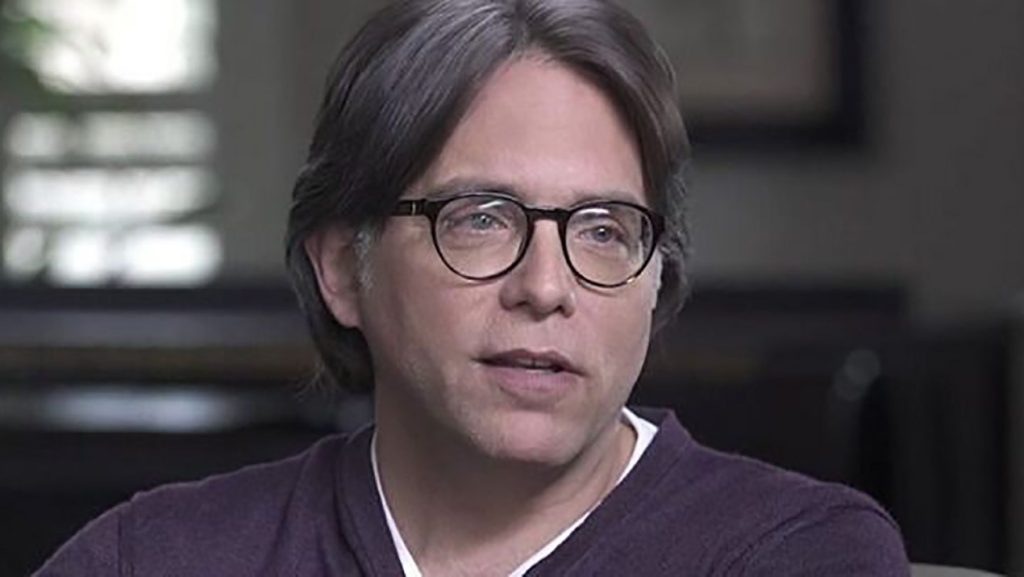Paragraph 1: Introduction to the Case and Allegations
Keith Raniere, the founder of the NXIVM organization, is currently serving a 120-year sentence for sex trafficking and related charges. Prosecutors successfully portrayed NXIVM as a self-help group masking a coercive sex cult, where Raniere manipulated women into becoming his "slaves." Allegations included branding rituals, the imprisonment of a domestic servant, and the sexual abuse of minors. The case garnered significant attention due to the involvement of prominent individuals like actress Allison Mack and Seagram’s heiress Clare Bronfman, both of whom were also convicted. Now, Raniere’s legal team is challenging the integrity of the evidence used to secure his conviction, specifically concerning the charges related to child pornography and child exploitation.
Paragraph 2: The Crux of the Defense’s Argument: Evidence Tampering
Raniere’s defense, led by attorney Joseph Tully, claims that crucial digital evidence, including photographs and hard drives allegedly containing child pornography, was manipulated while in FBI custody. They assert that timestamps on these files were altered to falsely portray a victim, identified as "Camila," as being underage at the time the images were taken. The defense also points to the appearance of new photographs in the FBI’s forensic reports during the investigation, further raising concerns about the integrity of the evidence handling process. These allegations, if proven true, would cast serious doubt on the validity of Raniere’s conviction on these particularly damning charges.
Paragraph 3: Expert Opinions and the Potential Impact
The defense’s claims are supported by sworn statements from seven experts, including Dr. Richard Kiper, a former FBI agent specializing in cybersecurity and digital evidence. Kiper’s affidavit details specific instances of alleged evidence manipulation, stating that he "strongly believes" the alterations were intentional. This testimony from a former FBI agent lends considerable weight to the defense’s argument. Prominent constitutional lawyer Alan Dershowitz, though not directly involved in the case, has consulted with Raniere’s team and expressed grave concerns about the potential implications of these allegations, describing them as a "staggering government act of misconduct" reminiscent of authoritarian regimes. He argues that such manipulation, if proven, could undermine public trust in the justice system and potentially affect other cases.
Paragraph 4: The Significance of the Child Exploitation Charges
The charges related to child exploitation were pivotal in Raniere’s conviction. Dershowitz argues that the original case against Raniere was weak and potentially winnable. However, the introduction of the child exploitation charges, based on the allegedly manipulated photographs, dramatically shifted the balance of the trial. The emotive nature of these allegations made it extremely difficult for Raniere to mount a successful defense. The severity of the charges also influenced other defendants, contributing to their decisions to accept plea deals, thereby weakening Raniere’s position further.
Paragraph 5: Motive and the Government’s Response
While the defense alleges intentional manipulation of evidence, the motive behind such actions remains unclear. Tully suggests that Raniere’s wealth and unpopularity might have made him a target. He draws a parallel to bullying behavior, suggesting that powerful individuals within the justice system may have been motivated by personal animosity. The FBI and the U.S. Attorney’s Office involved in the original case have so far declined to comment on the defense’s allegations, and a formal response from the prosecution is not expected until later. The defense’s request for a hearing to examine these claims has not yet been granted.
Paragraph 6: The Defense’s Pursuit of a New Trial and Broader Implications
Raniere’s legal team is seeking a new trial based on the alleged evidence tampering. They contend that the government knowingly used manipulated evidence to secure a conviction. The defense’s push for a hearing is critical; they argue that the public deserves to know the truth about the alleged manipulation. Dershowitz emphasizes the importance of transparency and due process, arguing that a hearing is essential not just for Raniere but for the integrity of the American justice system as a whole. The outcome of this legal battle could have significant ramifications, potentially setting a precedent for how digital evidence is handled and scrutinized in future criminal trials. The case raises crucial questions about accountability and the potential for abuse of power within law enforcement agencies.











